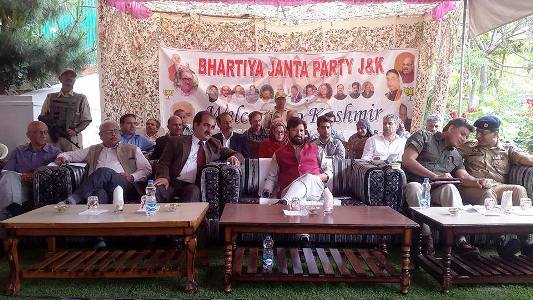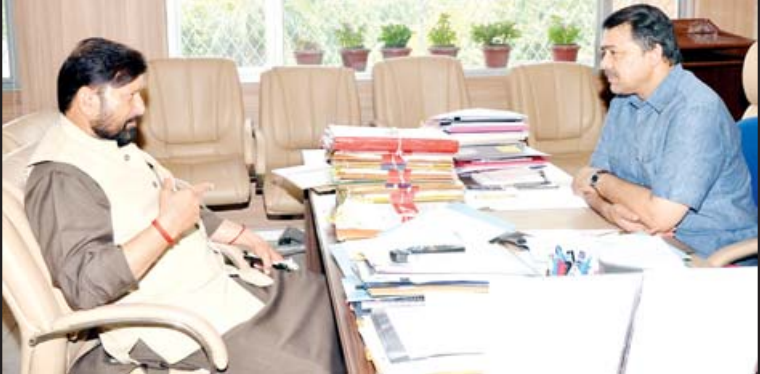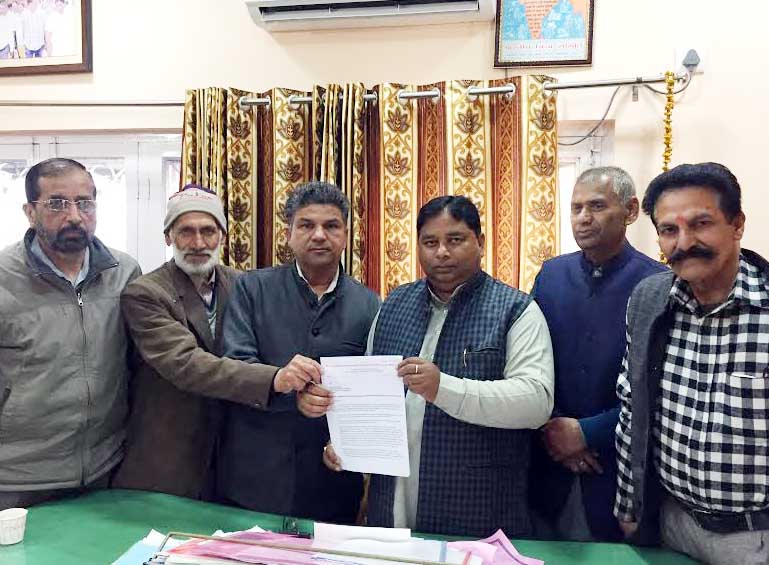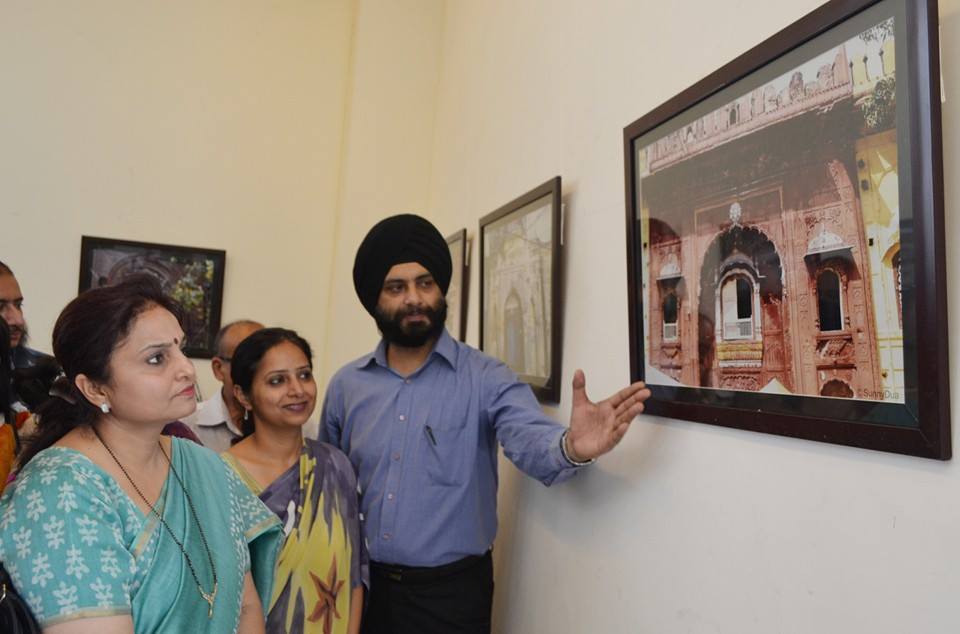‘Lal Singh holds durbar in Srinagar; Bali Bhagat in Pulwama; Chowdery Sham Lal in Ganderbal, Ab, Ghani Kohli in Baramulla, C.P. Ganga in Budgam and Ajay Nanda in Kulgam’.
Bharatiya Janata Party (BJP) Ministers have first time held public darbars in six districts of Kashmir to listen to the grievances of general public and solve the same by forwarding the genuine complaints to concerned government officials.
These darbars were held after BJP senior leadership has asked the party ministers in PDP-BJP coalition government to adopt the districts in Kashmir. “BJP ministers were asked to adopt the districts in Kashmir, listen to the genuine issues of people and find out the solution to address them,” Dr. Narinder Singh, BJP State General Secretary said, under whose supervision these darbars are and would be held.
Singh said the decision to adopt all the ten districts were taken by BJP with the purpose to ensure government at the door-steps of common people in Kashmir. “To ensure that all the centrally sponsored schemes are implemented on ground and for that BJP has organized public darbar here under the leadership of in charge minister in six- districts for the welfare of people,” he said.
He said successive governments have only exploited the people in Kashmir, which is evident from the fact that despite central government’s huge financial assistance through different schemes, no development is visible on ground.
“BJP has come up with a huge developmental plan and in near future, the people will witness new phase of development in BJP government,” he said.
He also asked party workers to move to the remotest areas and listen to the grievances of people there. “Listening to the grievances of common people in each village which need to be healed and for that BJP is committed to address their problems,” Singh said.
Today the darbars were held at Srinagar, Budgam, Ganderbal, Pulwama, Kulgam and Baramulla districts, where thousands of people gathered and put forward their grievances before concerned ministers about their day to day issues- particularly roads, electricity, potable water, ration and other essential commodities.




